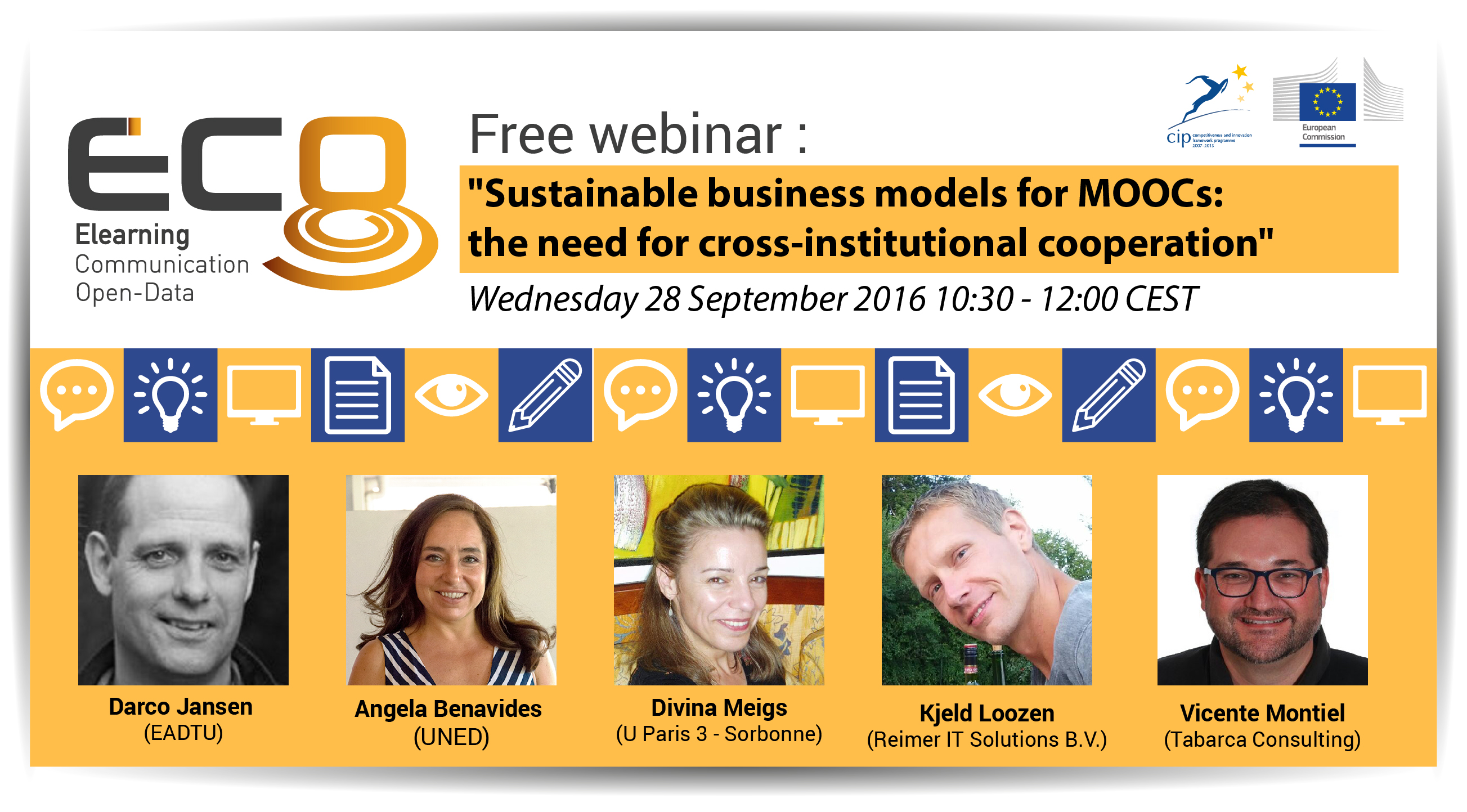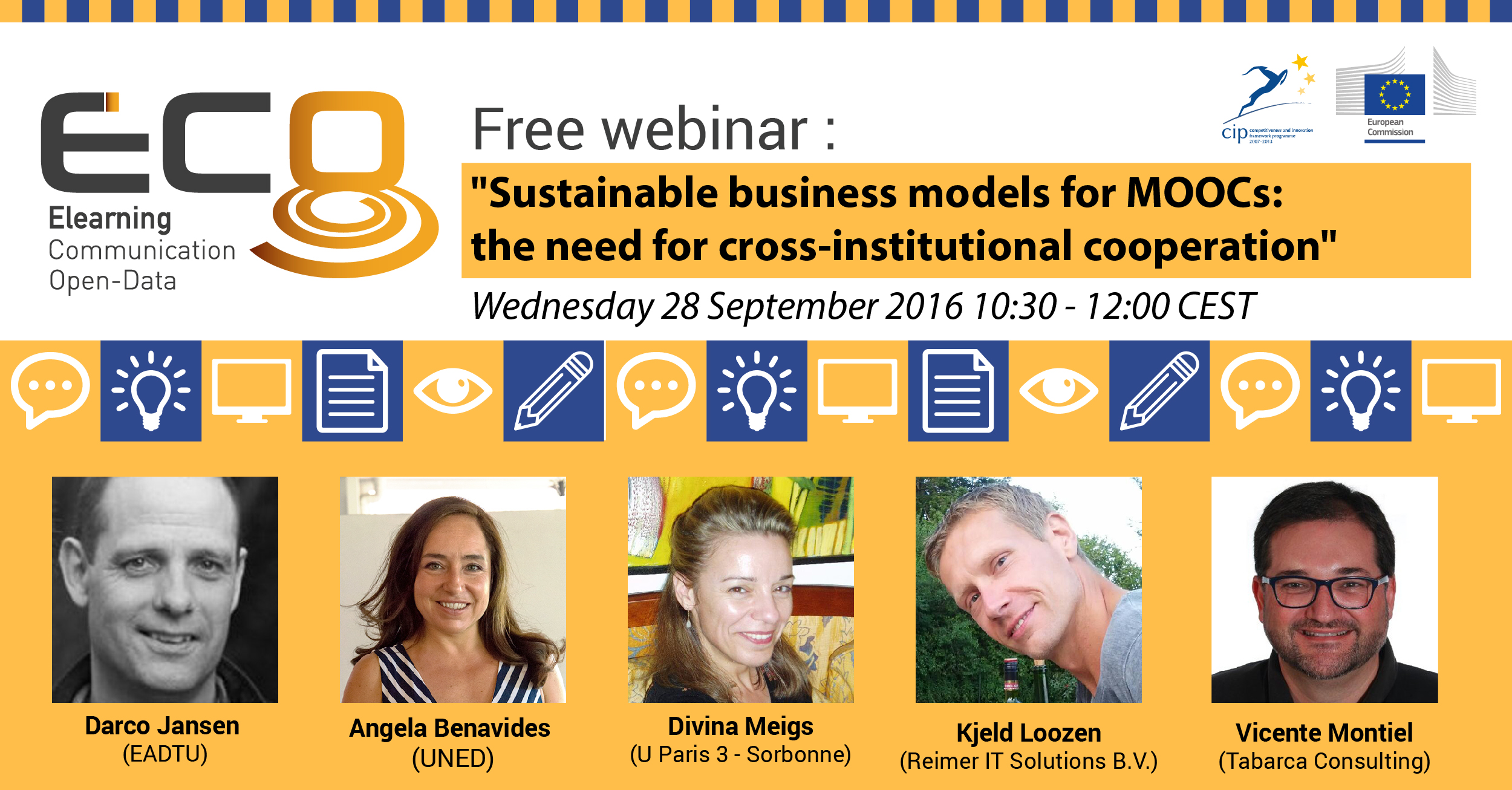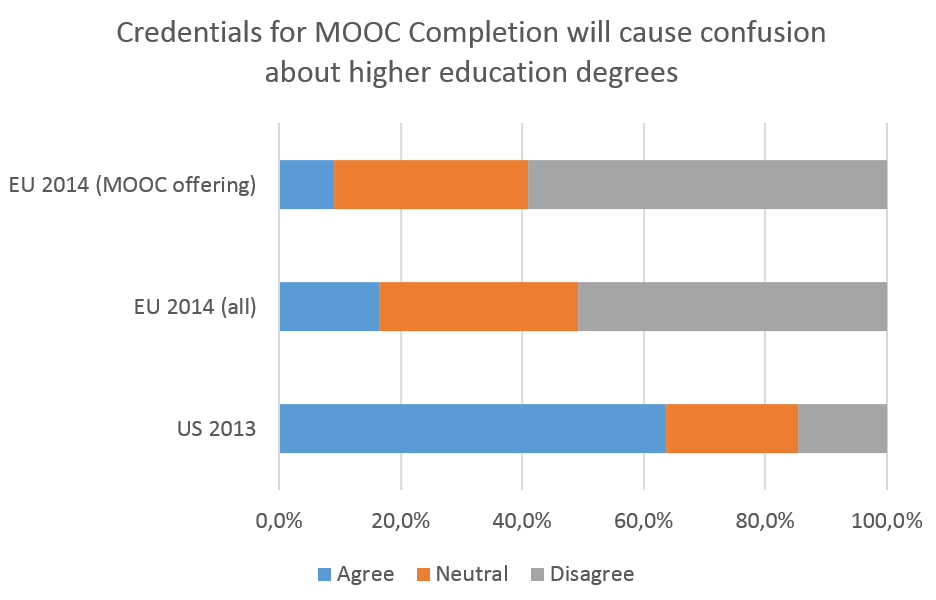
Business models for MOOCs – realistic and sustainable. Is that possible? We think so, and we’d like to share our points of view. If you want to increase your expertise in the matter, do not miss the next ECO Project webinar on 28 September 2016, 10:30-12:00 CEST. Hosted by EADTU, a series of ECO Project experts will lecture on the wide range of opportunities provided by MOOCs as a globally integrated tool for education-focused business.

Simply provide your name and email here to join the webinar. When using Clickmeeting app for smartphones or tablets you need to provide the following Room-ID 389-241-428 (and for some apps also Participant PIN 967889#). Note that the webinar will be recorded.
Agenda of the webinar
10:30-10:45: Introduction on MOOCs, their European dimension and ECO project
by Darco Jansen (EADTU)
10:45-11:00: How to make / keep MOOC provision sustainable?
– overview possible business models from different stakeholders perspectives
– what services should / must be provided at a decentralised level and what at a
centralised level
by Darco Jansen (EADTU)
11:00-11:15: Promotion of social inclusion and intercultural values through ECO decentralized models
by Angela Benavides Barahona (UNED)
11:15-11:30: ECO MOOC offering at decentralised MOOC level: services on pedagogical approach
and quality assurance
by Divina Meigs (U Paris 3-Sorbonne)
11:30-11:45: An overview of the ECO architecture
– how did we manage to integrate 6 different MOOC platforms?
– how can you plug your own MOOC platform into this architecture?
by Kjeld Loozen (Reimer IT Solutions B.V.)
11:45-12:00: How to become a business partner of ECO
by Vicente Montiel Molina (Tabarca Consulting)


